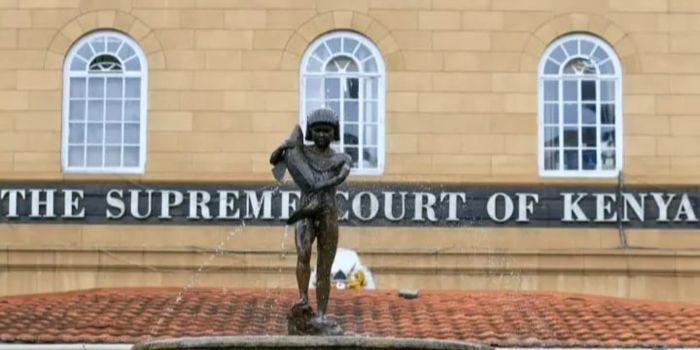Supreme Court judge Isaac Lenaola has raised concerns over the capabilities of the Judiciary’s e-filing system ahead of the 2027 general elections. The judge based his questions on the malfunction witnessed during the impeachment motion of former Deputy President Rigathi Gachagua.
While speaking during the Regional Conference on the Use of AI, Digital, and Social Media during Elections in Kenya, Lenaola poked holes at the timing of the system fault seen during the period of high political tension.
Lenaola further allayed that this could be seen during the 2027 General Elections, raising alarm at the effect it would have on the Judiciary’s integrity and, by extension, the country’s political stability.
“Those of you who followed the Gachagua saga will remember that at some point the (Judiciary) online filing system went down. I want you to carry this question into 2027. Why did that online platform collapse? Why did the firewalls that we created before 2022 suddenly become vulnerable? Imagine what will happen in 2027. I will say no more,” Lenaola averred.
Supreme Court Judge Isaac Lenaola.
File
Lenaola’s comments come in the wake of increased levels of election petitions that tend to follow the polls. For instance, the Supreme Court received eight petitions disputing the 2022 presidential elections.
The petitions bring with them increased scrutiny towards the Judiciary, whose verdicts can have a significant effect on the country’s political stability. In the 2017 and 2022 elections, the aftermath of the Apex Court’s verdicts saw massive political demonstrations in the country.
Lenaola seemingly intimated that history would repeat itself if the malfunctions were to happen again in the next elections.
At the same time, the judge raised alarm over Kenya’s election preparedness regarding the constitution of commissioners for the Independent Electoral and Boundaries Commission (IEBC).
Lenaola faulted the country’s inadequacy concerning readiness for 2027, contrasting it to the efficiency witnessed in passing other legislation that was politically motivated. He argued that Kenya was lagging in streamlining matters of national importance.
“I do not understand why, for example, we are busy passing legislation very quickly on other subjects that are politically important, but we do not look at what is extremely important for this country—the electoral commission. How can a country stand on its feet if it does not have an electoral commission?”
“Elections are in 2027. We are in 2024. When will this commission be prepared?” Lenaola quipped at members attending the conference.
He proposed the use of social media to drive up efforts towards realising the constitution of the IEBC commissioners. Lenaola argued that this could assist in accelerating legislation towards the commission’s formation.
“Why don’t we use social media to impact legislation? For instance, why don’t we have a hashtag, #AppointIEBCNow, and spread it? Those who have fortuity will actually follow it and do something,” he asserted.
He followed it up by criticising the grounds by which the constitution of the commission is being delayed. “Why is the IEBC not being constituted? Because Azimio cannot appoint their representative to the panel. Is that something to hold a country hostage for two years?” he posed.
For context, the resolutions of the National Delegation Committee (NADCO) Report indicated that the Azimio coalition, as the opposition in the country, submitted a member to the IEBC constitution panel. However, a back and forth between the government and Azimio, coupled with internal leadership wrangles at Azimio, has compounded efforts to this effect.
Azimio argues that after the submission of a member to the panel, the matter should sail through without public participation, but leaders aligned with the ruling class have advocated for the need for public participation in this endeavour.
The IEBC team at the Bomas of Kenya during the tallying of the 2022 general elections.
Photo
VOA


